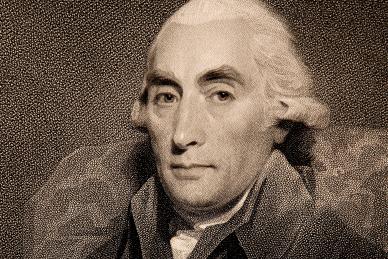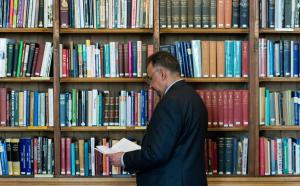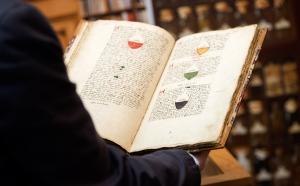
Joseph Black
(16 April 1728 – 6 December 1799)
College Role:
President

Notable Achievements
Black was president of the Royal College of Physicians of Edinburgh from 1788 to 1790.
In November 1783, Black was one of the founders of the Royal Society of Edinburgh.
Key Publications
- De humore acido a cibis orto et magnesia alba (1754)
- Lectures on the Elements of Chemistry (1803)
Biography
Joseph Black was born at Bordeaux on 16 April 1728. His father was an Irish wine merchant and he received his early education from his Scottish mother. At age 12, Black moved to Belfast where his education continued before he enrolled at the University of Glasgow, where he studied medicine under William Cullen. Cullen was also beginning to teach chemistry at Glasgow for the first time in 1747 and Black became his assistant in the laboratory; a position he held for three years. In 1752, Black transferred to the University of Edinburgh to continue his medical studies, continuing in the field of chemistry and beginning to experiment on the causticity of alkalis. In 1754 Black wrote his thesis based on his experiments and achieved his MD. His thesis was communicated to the Philosophical Society of Edinburgh in June 1755 and published in a volume of their essays the following year. This was to be his most significant publication.
Black began practising as a physician and from 1755 acted as substitute professor of chemistry. Cullen arrived in Edinburgh from Glasgow in 1756 and Black filled his position of professor of anatomy and botany in Glasgow. The following year he was made professor of medicine. Black took up teaching enthusiastically and developed his private practice. Early in his period of teaching at Glasgow, Black met James Watt, and the two later entered into a partnership together. Black’s major research in this period involved the theory of heat and he developed concepts of latent and specific heat.
In 1766, Black was appointed chair of the institutes of medicine in Edinburgh, succeeding John Rutherford. Black was a popular and illustrious teacher and his lecture courses attracted large numbers of students. Black played a major role in the Royal College of Physicians of Edinburgh, as president and in revising new editions of the pharmacopoeia. Black also acted as one of the managers of the Royal Infirmary for several years.
In 1777 Black was provided with a laboratory and classroom which ultimately proved to be unsuitable. In 1781 Black had a purpose built laboratory made available to him and he continued his work developing chemical-based industries.
Black never married but lived a well-ordered life. He continued teaching until 1796. Black died on 6 December 1799 and is buried in Greyfriars Kirkyard.



